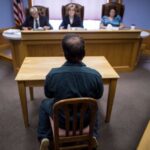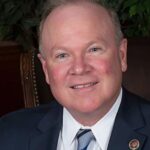The General Assembly is moving toward requiring history teachers to study black history. SB 1196, passed by the state senate, would mandate teachers seeking a license or license renewal to have training in “cultural competency” and complete board-approved instruction in African American history.
I worry about these “cultural competency” requirements, and whether schools will teach bizarre racial stereotypes under the guise of cultural competency. For example, the Seattle Schools, under the guise of teaching cultural competence, made bizarre claims, such as that individualism is racism, that only whites can be racists, and that “future time orientation” – planning ahead – is a stereotypically white characteristic that minorities shouldn’t be expected to exhibit. As a black Supreme Court Justice disapprovingly noted in a 2007 ruling, “The Seattle school district’s Website formerly contained the following” examples of what it called “cultural racism’: “emphasizing individualism as opposed to a more collective ideology” and “defining one form of English as standard.”
These disturbing claims came from Pacific Education Group, one of America’s most famous diversity-training firms, which has been hired by school districts in Virginia, Maryland, and many other states. It has promoted some of the crudest imaginable racial stereotypes, such as claiming that “white talk” is “verbal, impersonal, intellectual” and “task-oriented,” while black talk is “emotional.”
Let’s hope that the Pacific Education Group is not involved in designing Virginia’s Black History curriculum. In the meantime, it is now Black History Month and Virginians should consider inoculating themselves against Critical Race Theory-infused thinking by reading about one of America’s great thinkers and orators, Frederick Douglass. Continue reading
















